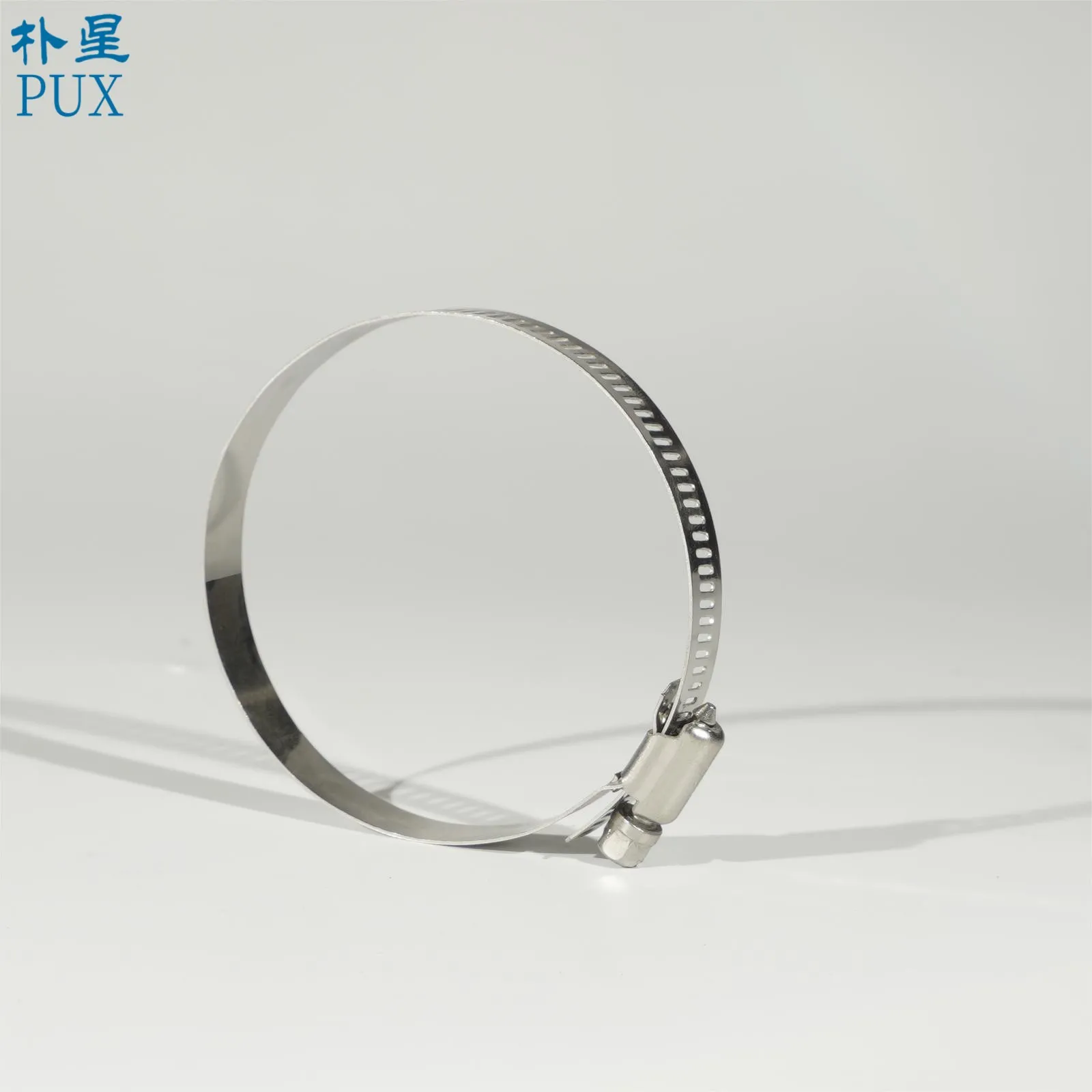- Phone:+86-17331948172 +86-0319-8862898
- E-mail: inquiry@puxingclamp.com
Dec . 05, 2024 13:57 Back to list
fuel hose clamp factories
Fuel Hose Clamp Factories Ensuring Safety and Efficiency in Automotive Applications
In the complex world of automotive manufacturing and maintenance, the importance of high-quality components cannot be overstated. Among these components, fuel hose clamps play a crucial role in the effective and safe operation of various vehicles. Fuel hose clamps secure the fuel lines, ensuring that there are no leaks that could lead to serious safety hazards or inefficient engine performance. Hence, the factories that manufacture fuel hose clamps must adhere to stringent quality control measures and employ advanced manufacturing techniques to provide reliable products.
Understanding the Role of Fuel Hose Clamps
Fuel hose clamps are essential components used to secure fuel hoses in place, preventing fuel leaks that can result in hazardous situations, such as fires or explosions. They come in various designs, including worm gear clamps, spring clamps, and specialty clamps, each suited for different applications and fuel system configurations. When selecting fuel hose clamps, factors such as material selection, clamp design, size, and pressure tolerance are critical. Quality fuel hose clamps are often made from corrosion-resistant materials, such as stainless steel, which can withstand exposure to fuels and harsh environmental conditions.
The Manufacturing Process of Fuel Hose Clamps
The production of fuel hose clamps involves several steps, each requiring precision and expertise. First, raw materials are sourced, and the selection of the right type and grade of metal is crucial. Once the materials are chosen, they undergo processes such as cutting, bending, and forming. Advanced machinery, including CNC (Computer Numerical Control) machines, is utilized to ensure accuracy in dimensions and shapes.
After the initial forming process, the clamps undergo surface treatments, such as galvanization or passivation, to enhance their corrosion resistance properties. These treatments are vital for ensuring the longevity of the clamps and their ability to function reliably in demanding environments.
Quality control is an integral part of the manufacturing process. Factories implementing ISO standards or other quality management systems conduct thorough inspections at various stages, including checking for dimensional accuracy, material integrity, and finishing quality. This rigorous testing ensures that only top-notch products reach the market.
fuel hose clamp factories

Challenges Faced by Fuel Hose Clamp Factories
Manufacturers of fuel hose clamps face several challenges in today's competitive market. One major concern is the constant evolution of materials and technologies. As vehicles become more advanced, the requirements for fuel systems are also changing. Fuel hose clamps must be adaptable to a variety of fuels, including biodiesel and ethanol blends, which may have different chemical properties and require specialized materials.
Additionally, environmental regulations regarding manufacturing processes and materials are becoming increasingly stringent. Factories must not only ensure compliance with these regulations but also strive for sustainable practices. This could involve reducing waste, recycling materials, and minimizing energy consumption during production.
Competition from global markets also poses a challenge. Many manufacturers operate in countries with lower labor costs, making it difficult for domestic factories to compete on price. Therefore, focusing on quality, innovation, and customer service becomes essential for manufacturers aiming to hold their ground in the market.
Future Directions for Fuel Hose Clamp Manufacturing
As the automotive industry shifts towards electrification and sustainability, the demand for fuel hose clamps is evolving. The growth of electric vehicles (EVs) may alter the traditional fuel line design, requiring manufacturers to adapt quickly. Nevertheless, fuel hose clamps will continue to be relevant in hybrid vehicles and conventional combustion engines.
To stay ahead, fuel hose clamp factories must invest in research and development to innovate their product offerings, ensuring they meet the changing needs of the automotive market. Emphasizing automation and digitalization in the manufacturing process can also enhance productivity and efficiency.
In conclusion, fuel hose clamp factories play an indispensable role in the safety and performance of automotive fuel systems. Through stringent manufacturing processes, exceptional quality control, and a commitment to innovation, these factories help ensure that vehicles operate efficiently and safely, contributing to a more reliable transportation network. As the industry continues to evolve, manufacturers must adapt to new challenges and opportunities, ensuring the relevance of their products in the future.
-
Large Stainless Steel Adjustable American Type Hose Clamp - Hebei Pux Alloy Technology Co., Ltd
NewsAug.05,2025
-
Large Stainless Steel Hose Clamp - Hebei Pux Alloy Technology Co., Ltd | Corrosion Resistance, Adjustable Design
NewsAug.05,2025
-
Large Stainless Steel Adjustable American Type Hose Clamp - Hebei Pux Alloy Technology Co., Ltd | Corrosion Resistance&Adjustable Design
NewsAug.05,2025
-
Large Stainless Steel Adjustable American Type Hose Clamp - Hebei Pux Alloy Technology Co., Ltd | Corrosion Resistance, High Breaking Torque
NewsAug.05,2025
-
Large Stainless Steel Adjustable American Type Hose Clamp-Hebei Pux Alloy Technology Co., Ltd.|Corrosion Resistance&Adjustable Locking
NewsAug.05,2025
-
Large Stainless Steel Adjustable American Type Hose Clamp - Hebei Pux Alloy Technology|Corrosion Resistance, Adjustable Design
NewsAug.05,2025




